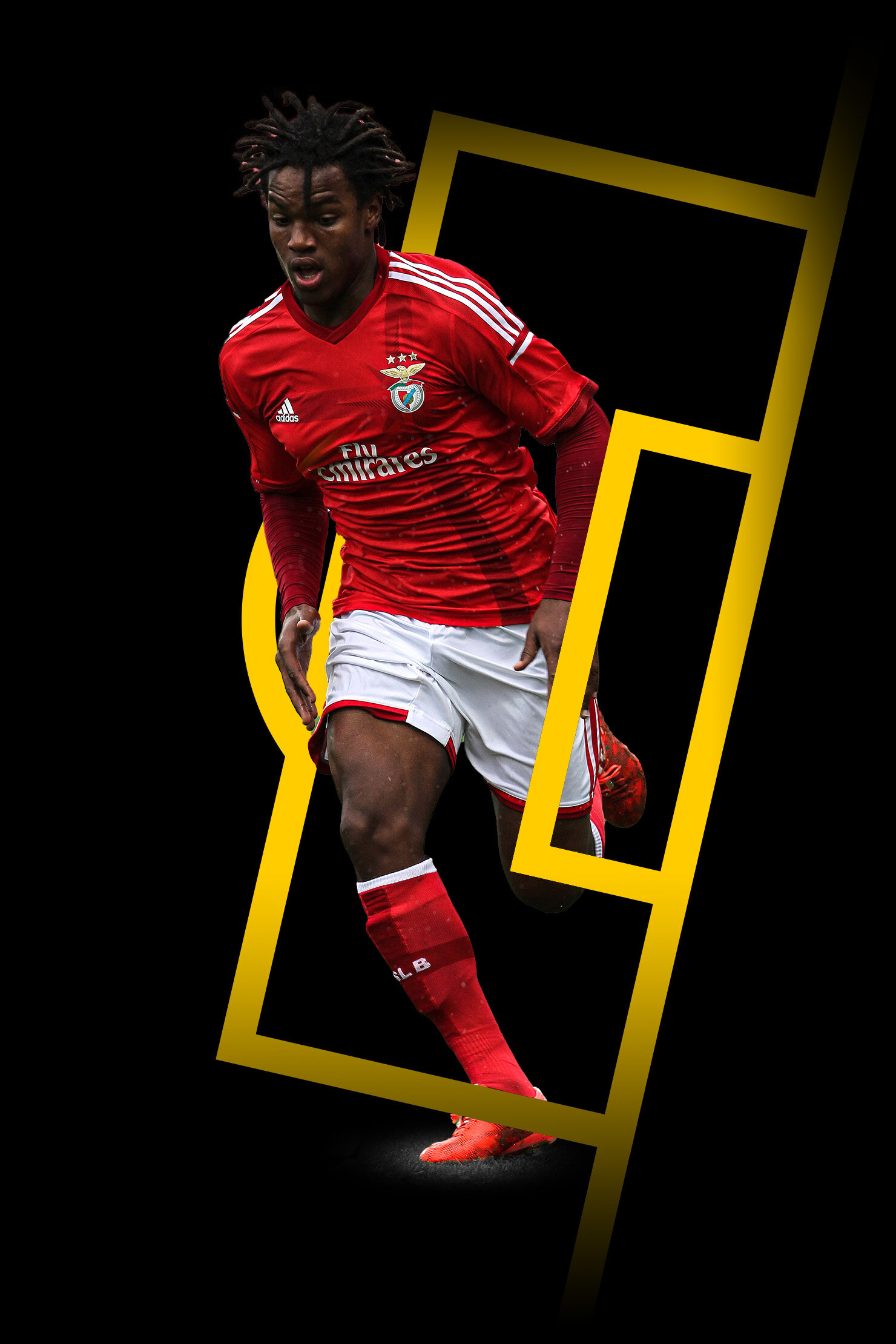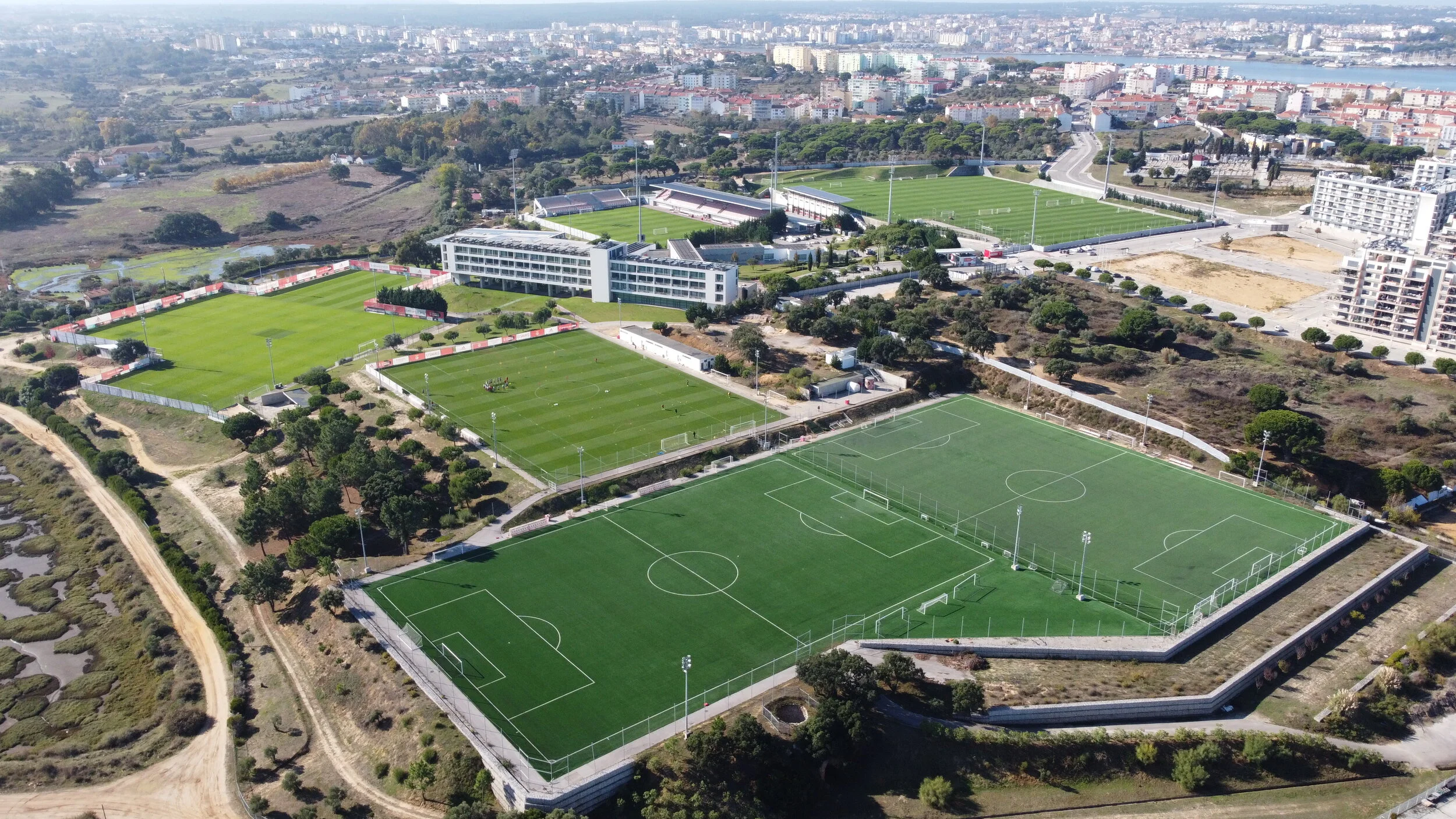
Benfica’s player development
Balancing quality technical training & educational enrichment across all ages
“Football may not be a part of your future, but your education is something that you carry for life”
Benfica are proud that they develop well-rounded players, balancing technical training with educational enrichment across all age groups.
The Portuguese giants have a holistic approach, because football is a part of society and – according to Benfica Technical Director Pedro Marques – the sport has an obligation to give back.
The club try to grow their world-famous academy commercially on a global scale.
At Benfica, they practice futurology, in other words: they decipher what the future of both the beautiful game and society will hold. What did the recent European Championship tell us about where the game going is? Will players need quick decision-making and polyvalence to respond to the demands of the future? What did we learn from the global health crisis and how will it shape the years to come?
This is more than simply an academic exercise. It feeds into the essence of Benfica’s youth academy – how can the club develop well-rounded players, balancing technical training with educational enrichment across all age groups? This requires a holistic approach, because football is part of society and – according to Benfica Technical Director Pedro Marques – the sport has an obligation to give back.
At the club’s state-of-the-art Caixa Futebol Campus, south of the capital Lisbon, 90 youth players enjoy an education in the broadest sense: football front and centre with nine pitches, gyms and 360s simulator to develop, monitor and hone their skills. At the same time, their academic performance is encouraged at all levels. Education and well-being are part of to the player model as the club want their youth players to think about life outside of the game as well, because elite sport is merciless. Very few reach the top and the pathway is packed with obstacles and complications. Players need a plan B.
At Benfica, all players receive an education passport, mapping their academic career and the life skills acquired. This is all part of their personal development programme. From a young age, youth players are handed responsibilities, which is a way for the club to promote and impart core institutional values such as fair play, solidarity, respect and tolerance. At U-10 and U-11 level, players have to take care of the training kits. This responsibility and autonomy grows over time, with school and studies playing an important role. Through the Benfica Foundation, the players and the staff take part in charity work once a month.
In 2017, the club invested in a private college so that players from U-16 upwards can fit their education around their training sessions. Benfica also provide support classes on their campus for any players that may be struggling in school.
‘It’s education and football side by side,” stresses Marques. “Benfica have different strategies to make them realise that education is important: football may not be a part of your future, but your education is something that you carry for life. First and foremost they are persons, individuals, and there is a quote from Jesse Marsch that I heard some time ago: ‘Good people make great players, not the other way around’.”
On the commercial side, meanwhile, Benfica believe that they have developed a special model for their academy that can be used all over the world. In an interview last year, Global Expansion Director Faria de Carvalho explained that Benfica are utilising what they call their “major asset” – their academy – to take on Europe’s elite because they do not share the commercial reach or appeal of the biggest clubs in Europe.
“The Portuguese league does not have the global viewership we would like to have. The top ten to 15 clubs in the Deloitte Money League, fortunately for them, have a worldwide viewership, making it easy for them to expand on a B2C [business to consumer] level to get as many fans as possible. We understand that it is very difficult to compete in that arena and have decided to engage worldwide on a professional level.”
Instead of selling exposure through commercial sponsorships, Benfica are exporting know-how on the fundamentals of football. From the academy, which has produced two Golden Boy winners in the past four years in Renato Sanches and João Félix, the Portuguese club are selling the teachings of their academy to other football clubs in what they call the “Business 2 Football” (B2F) model.
“We have decided to put all our chips on that,” Carvalho says, describing their core product: coach training, team training camps, consultancy and player development.
“We consider our academy to be one of the best in Europe and probably the world – at least we’ve been getting some awards. In the last five years, if you look at the players we have sold who have come through the academy, I don’t think any other academy in the world has sold as many as we have. We are renowned for that. This is really what makes us different and gives us have something special to offer. The Benfica football system and our ‘Made in Benfica’ brand can live with any club on the planet.”
Faria de Carvalho has the facts to back it up. In the past decade, Benfica have sold developed academy players for a combined USD 440 million (over USD 1 billion in total player sales), with João Félix's reported USD 156 million transfer to Atlético Madrid a club record.
Technical Director Pedro Marques explains that “talent can be born anywhere but at the top, what makes the difference is your head, the mental side. That’s why we commit to developing well-rounded players, well-rounded individuals, because that will bring more longevity in the career of the player, more longevity after their careers too if something happens.”
It also allows the players to manage the expectations of playing for one of Europe’s biggest clubs and the dream of following in the footsteps of marquee players like Bernardo Silva and Renato Sanches. They can be blinded and ultimately disappointed by a future that may never arrive, even more so in a world filled with the glamour and glitter of perfect social media lives.
“We like to think that we are here to develop good players and first and foremost to develop good people,” says Marques. “We like to think that, here at our Benfica campus, we have a school of football for life.”








